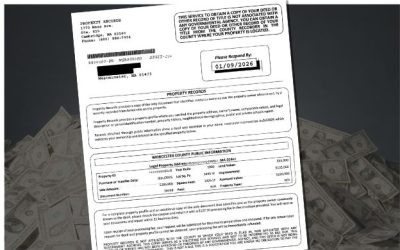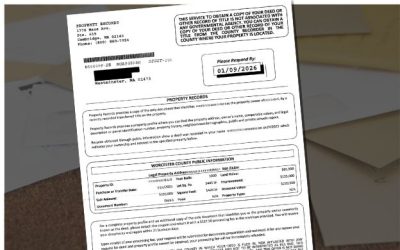
Jun 19, 2025 | Around The Home, Around The Hoome, Artificial intelligence, Buying Real Estate, Chapter 7 Bankruptcy, Consumer Tips, Credit Scoring, Fair Housing, Federal Reserve, FHFA, Financial Crisis, Financial Fraud, Financial Reports, Foreclosure, Happy Thanksgiving, Holidays, Home Building Tips, Home Buyer Tips, Home Buying Tips, Home Care, Home Care Tips, Home Closings, Home Decorating, Home Financing Tips, Home Maintenance, Home Mortgage, Home Mortgage Tips, Home Seller Tips, Home Selling Tips, Home Tips, Home Values, Homebuyer Tips, Homeowner Tips, Housing Analysis, Housing Market, Interesting Stuff, Investment Properties, Legislation, Market Outlook, Mortagage Tips, Mortgage, Mortgage Guidelines, Mortgage Lenders, Mortgage Rates, Mortgage Tips, mortgage-rates-whats-ahead-september-17-2012, News, Organization Tips, Personal Finance, Probate Law, Rankings, Real Estate, Real Estate Agent Information, Real Estate Definitions, Real Estate Tips, Real Estate Trends, Realtors, Selling Real Estate, Selling Your Home, Short Sales, Statistics, Success, Taxes, The Economy, Title Insurance
Whether you’re buying with cash, investing from abroad, transferring property to a family member, or just trying to close without a headache, you’ll want to know what can trigger federal scrutiny — and how to stay off the radar.
From flagged wire transfers and shell companies to gift-of-equity sales and land near military zones, this isn’t your average title-and-keys situation.
It’s real estate with a side of national security, tax enforcement, and financial crime prevention.
Is Big Brother Watching Your Home Sale?
What Buyers and Sellers Should Know About Federal Oversight
You’re Not Paranoid — They Might Actually Be Watching
What you didn’t know on how federal agencies keep tabs on select real estate transactions.
Your Closing Packet Could Be a Federal File
How Your Paper Trail Might Raise Red Flags — And What You Can Do About It
What the FBI, IRS, and Homeland Security
Could See in Your Closing Docs
We’re unpacking what agencies might spot inside your deal’s fine print.
Caught in the Crosshairs? What Triggers Federal Interest in Your Home Sale
The Top Red Flags That Could Invite a Closer Look from Washington
Cash, LLCs, or Land Near a Base? You Might Just Be a Target
The warning signs that put your deal on the government’s radar — and how to stay clear.
Follow the Money: How the IRS Tracks Financial Crimes Through Real Estate
From Unreported Income to Shell Game Schemes
— What IRS-CI Is Looking For
Your Closing Could Be an Audit Trigger — Here’s How the IRS Sees It
Explore the patterns, documents, and loopholes that turn ordinary deals into criminal cases.
Providing title, escrow, closing and settlement services to clients throughout Massachusetts and New Hampshire
“As a realtor, the Rocheford team went above and beyond to make sure my client was not only protected from a legal standpoint but also operated in a timely manner to execute the sale of my client’s dream home.
Thank you for the great experience for myself and my client! Looking forward to our next deal together!”
Realtor®
“I don’t usually use attorneys that often. But if an attorney is needed, I couldn’t recommend this law office enough. I always pride myself on responding quickly to emails and calls, but I was in awe of how fast paralegal Robert Heckman would respond to us. We sold our house a couple months ago and then did a two-part land swap with neighbors and my folks, and both transactions were seamless, including coming in to sign paperwork.
In short, if you need a law office that is responsive and attentive to detail, definitely consider them!”
Leominster, MA
“Excellent, conscientious and professional.
The communication throughout our Real Estate transaction was better than expected. We thought the fee to be very reasonable considering the work accomplished on our behalf. The law office handled the entire closing without us having to be in attendance….as we requested. I have had experience with very competent lawyers and law firms as the result of my previous profession. I would place this law office right up there among the best in their real estate field of expertise and surprisingly at very reasonable and affordable rates/fees.”
Buzzards Bay, MA

Jun 19, 2025 | Federal Reserve, Financial Fraud, Home Buyer Tips, Home Mortgage, Homebuyer Tips, Mortgage, Realtors, Selling Real Estate, Selling Your Home, Taxes, The Economy
Your Closing Could Be an Audit Trigger — Here’s How the IRS Sees It
When most people think of the IRS, they imagine audits and paperwork — not criminal agents working alongside the FBI and Homeland Security. But the IRS-Criminal Investigation Division (IRS-CI) is a powerful enforcement arm of the federal government, and real estate is one of its favorite trails to follow.
From luxury home purchases with unexplained funds to “gifted” equity that isn’t reported properly, the IRS-CI routinely uncovers criminal tax activity by analyzing real estate transactions. If you think your closing statement is just a formality — think again.
Real Estate as a Laundering Tool: Clean Property, Dirty Money
One of the most common IRS-CI cases involves individuals or entities using real estate to hide the source of illicit income.
Common Red Flags:
- Homes purchased with cash not supported by reported income
- Funds layered through multiple entities or relatives
- Repetitive buying and selling at inflated or deflated prices
Learn how IRS-CI tracks financial crimes through real estate
“Gift of Equity” Deals with Missing Paper Trails
It’s common in family-to-family sales to offer a discount — a “gift of equity.” But when these transfers aren’t properly documented, they can flag problems on both income tax and gift tax returns.
Triggers Scrutiny When:
- No gift letter is included in the mortgage or closing file
- Gift exceeds the annual IRS gift exemption and is not reported via Form 709
- Property is sold well below market value without explanation
IRS explanation of gift tax rules: When does a gift of equity trigger tax obligations?
Structuring or Smurfing Through Real Estate
IRS-CI also tracks “structuring,” also known as smurfing — where large sums of cash are broken into smaller amounts to avoid bank reporting thresholds.
How it Appears in Real Estate:
- Multiple down payments from different accounts or people
- Several transfers under $10,000 leading up to a purchase
- Sudden influx of funds from unrelated sources close to closing
These patterns are especially suspicious in all-cash or entity-based purchases.
Shell Companies and Fake Deductions
If the property is being purchased or sold through an LLC or trust, the IRS wants to know who actually controls the asset — especially when tax deductions or depreciation are claimed.
Triggers Scrutiny When:
- Owner hides behind multiple corporate layers
- Rental property expenses are exaggerated or fabricated
- Pass-through income isn’t declared properly
FinCEN’s Corporate Transparency Act ties directly into this enforcement
Review new rules on beneficial ownership disclosure
What This Means for Buyers, Sellers, and Agents
Whether you’re transferring a condo to your niece or selling a vacation home at a discount, the IRS-CI may see more than you expect. And in complex deals — especially those involving cash, gifts, or multiple parties — you could easily trigger review without realizing it.
IRS-CI agents don’t conduct routine audits — they build criminal cases. Your best protection is documentation, legal accuracy, and transparency.
Don’t Let a Paper Mistake Become a Tax Investigation
At The Law Office of David R. Rocheford, Jr., P.C., we guide every transaction with tax compliance in mind. Whether you’re transferring property to family, buying with equity, or structuring a trust sale — we help you stay within IRS guidelines and out of trouble.
Providing title, escrow, closing and settlement services to clients throughout Massachusetts and New Hampshire
“I would highly recommend David as a closing attorney. I have known David and have been using his office for many years. David’s professionalism when dealing with me, my closing department and most especially my clients has been always exemplary.”
SENIOR LOAN OFFICER, SHAMROCK FINANCIAL SERVICES
“The Law Office of Attorney David R. Rocheford, Jr. is by far the most exceptional real estate law office that I have had the pleasure of working with. The professionalism is by far second to none.”
SENIOR LOAN OFFICER, SALEM FIVE MORTGAGE SERVICES
“Attorney David Rocheford has provided settlement and title services for me and Greenpark Mortgage several years. He has assisted all of my clients, including my family and friends with mortgage closings. Always providing excellent service. Reliable and trustworthy!”
Jan 9, 2013 | The Economy
 The Bureau of Labor Statistics (BLS) Non-Farm Payrolls report for December exceeded Wall Street’s expectations by 5,000 net new jobs, showing 155,000 positions created in December.
The Bureau of Labor Statistics (BLS) Non-Farm Payrolls report for December exceeded Wall Street’s expectations by 5,000 net new jobs, showing 155,000 positions created in December.
The December tally raised the economy’s 12-month total to 1.84 million net new jobs created nationwide. Jobs added in December mark the 27th consecutive month of job growth.
Job sectors showing the strongest growth to close out 2012 included:
- Health Care
- Drinking and Eating Establishments
- Construction
- Manufacturing
Private-sector hiring is driving the jobs market, too. 168,000 new private sector jobs were added in December. Government jobs fell by thirteen thousand.
Monthly job creation has averaged +153,000 jobs since 12 months ago. It’s a fine measure of growth but economists believe it’s not enough job creation to significantly reduce the national unemployment rate. 14.4 percent of workers are categorized as under-employed.
December’s national unemployment rate was 7.8 percent, representing 4.8 million job seekers. This figure matched Wall Street’s expectations and was equal to November revised unemployment rate of 7.8 percent.
The improving jobs market and national unemployment rate make an impact on both mortgage rates and Worcester County area home prices.
Job creation suggests an expanding economy, which typically leads mortgage rates higher. In addition, with more employed persons nationwide, the potential home buyer pool grows larger, which introduces new demand to the housing market. With more demand, all things equal, home prices rise.
Job growth is one reason why home values climbed more than 5 percent in 2012, according to the Federal Home Finance Agency; and why the national housing supply would be exhausted in fewer than 5 months, at the current sales pace. Demand for homes is high and today’s low mortgage rates are extending buyer purchasing power in Worcester County area.
For home buyers, the expanding U.S. economy and steady job growth suggests that home prices may not rocket higher this year, but will continue to increase, little by little.
Dec 12, 2012 | The Economy
 According to the Bureau of Labor Statistics (BLS) and its November 2012 Non-Farm Payrolls report, the U.S. economy added 146,000 net new jobs last month.
According to the Bureau of Labor Statistics (BLS) and its November 2012 Non-Farm Payrolls report, the U.S. economy added 146,000 net new jobs last month.
November’s job growth exceeded Wall Street expectations of 90,000 jobs added for the month, and was a small increase from October’s 138,000 jobs added.
Three job sectors in which employment rose in November include :
- Retail : 58,000 jobs added
- Business and Professional Services : 43,000 jobs added
- Healthcare : 20,000 jobs added
It appears that the effects of Hurricane Sandy were muted, although they may be temporarily overshadowed by seasonal factors.
After losing more than 7 million jobs in 2008 and 2009, the U.S. economy has since recovered more than 4.6 million jobs. Job growth has reached 26 consecutive months and is expected to remain consistent through 2013.
In addition, the BLS report showed the national unemployment rate dropping 0.2 percentage points in November to 7.7 percent. This is the lowest Unemployment Rate since January 2009.
Growing employment is a strong indicator of economic expansion, which traditionally leads to rising mortgage rates.
When mortgage people work, more income is earned and more taxes are paid. This often leads to higher levels of both consumer spending and government spending, both of which spur additional hiring and economic expansion.
When the economy is in expansion, equity markets often gain and bond markets often lose. When bond markets are in retreat, mortgage rates in Massachusetts rise. This relationship takes on added importance this week with the Federal Reserve’s Federal Open Market Committee (FOMC) scheduled to adjourn.
The Non-Farm Payrolls Report is a top economic indicator and is a key part of economic and policy decision made Capitol Hill and within the Federal Reserve. As one example, recent Federal Reserve stimulus has been specifically aimed at lowering the national Unemployment Rate. As the economy improves and as jobs are regained, the Fed may be less likely to support low rates.
If you’re floating a mortgage rate, consider locking in. Rates can’t stay low forever.
Dec 6, 2012 | The Economy
 Floating a mortgage rate? Consider getting locked Thursday.
Floating a mortgage rate? Consider getting locked Thursday.
ADP released its November 2012 Employment Report Wednesday in which the payroll-processing firm reported 118,000 new jobs created last month.
The company said the service sector created 114,000 new positions, the construction sector created 23,000 new positions, and goods-producing businesses created 4,000 new jobs, among others. There was a 16,000 decline in manufacturing employment.
ADP’s monthly Employment Report can influence mortgage rates. This is because it’s typically released during the same week as the Non-Farm Payrolls report from the U.S. Bureau of Labor Statistics, and can sometimes provide a preview.
The Non-Farm Payrolls report — more commonly called “the jobs report,” is a sector-by-sector breakdown of the U.S. employment situation, which includes changes in the national Unemployment Rate.
In a recovering economy, as jobs go, so goes the economy and, this month, the jobs forecast is clouded because of the effects of Hurricane Sandy.
In its Employment Report, ADP estimates that Hurricane Sandy reduced payrolls by 86,000 jobs across manufacturing, retail, leisure and hospitality, and temporary help industries.
Without Hurricane Sandy, the report may have shown north of 200,000 new jobs.
Prior to Wednesday, Wall Street expected Friday’s Non-Farm Payrolls report to show 93,000 net new jobs created in November, and no change in the U.S. Unemployment Rate. The ADP report did little to change those expectations.
Regardless, Friday’s release remains a market risk to Worcester County area buyers. The jobs report is closely watched because of its links to the broader domestic economy. When more workers are employed, more income is earned, and more money is spent.
This drives economic growth, of course, because consumer spending accounts for 70% of the U.S. economy and when the economy is expected to expand, mortgage rates tend to rise.
If you are currently in the market for, or are undecided about a mortgage, therefore, consider locking your mortgage rate today. If Friday’s Non-Farm Payrolls report shows more jobs created than were estimated, mortgage rates are likely to rise — maybe even sharply.
Non-Farm Payrolls is released at 8:30 AM ET.
Nov 6, 2012 | The Economy

Another month, another good showing for the U.S. economy.
Mortgage rates are performing surprisingly well after Friday’s release of the October 2012 Non-Farm Payrolls report. The Bureau of Labor Statistics’ monthly report beat Wall Street expectations, while also showing a giant revision to the previously-released job tallies of August and September.
171,000 net new jobs were created last month against calls for 125,000 and revisions for the two months prior totalled 84,000.
October also marked the 25th consecutive month of U.S. job growth — a period during which 3.8 million jobs have been reclaimed. This sum represents more than half of the 7.3 million jobs lost between 2008-2009.
Nationally, the Unemployment Rate rose by one-tenth of one percent last month to 7.9%. It may seem counter-intuitive to see unemployment rates rise even as job growth soars. However, it’s a sign of economic strength.
October’s rising Unemployment Rate is the result of more workers entering the U.S. workforce and actively looking for jobs, a manifestation of rising consumer confidence levels and optimism for the future.
Typically, mortgage rates in Worcester County area would worsen on a strong jobs report like this. This month, however, rates are improving. This is mostly the result of Hurricane Sandy, which is expected to create a drag on the U.S. economy with its $50 billion damage tag.
The storm has Wall Street looking past the strong jobs report, positioning itself for the next few months. Investors are moving into less risky assets until the uncertainty surrounding the storm’s effects subside. Mortgage-backed bonds are considered “safe” and are benefiting from this safe haven buying pattern.
For home owners and buyers in Massachusetts and nationwide, the shift is yielding an opportunity to lock mortgage rates at artifically-low levels. 30-year fixed rate mortgages remain well below 3.50% for borrowers willing to pay discount points, and home affordability is approaching an all-time high.
Home values are expected to rise through 2013 so consider this week’s low rates a gift. If you’re in a position to go to contract and/or lock a mortgage rate, you may want to take that step today.















 The Bureau of Labor Statistics (BLS) Non-Farm Payrolls report for December exceeded Wall Street’s expectations by 5,000 net new jobs,
The Bureau of Labor Statistics (BLS) Non-Farm Payrolls report for December exceeded Wall Street’s expectations by 5,000 net new jobs,  According to the Bureau of Labor Statistics (BLS) and its November 2012 Non-Farm Payrolls report, the U.S. economy
According to the Bureau of Labor Statistics (BLS) and its November 2012 Non-Farm Payrolls report, the U.S. economy  Floating a mortgage rate? Consider getting locked Thursday.
Floating a mortgage rate? Consider getting locked Thursday.